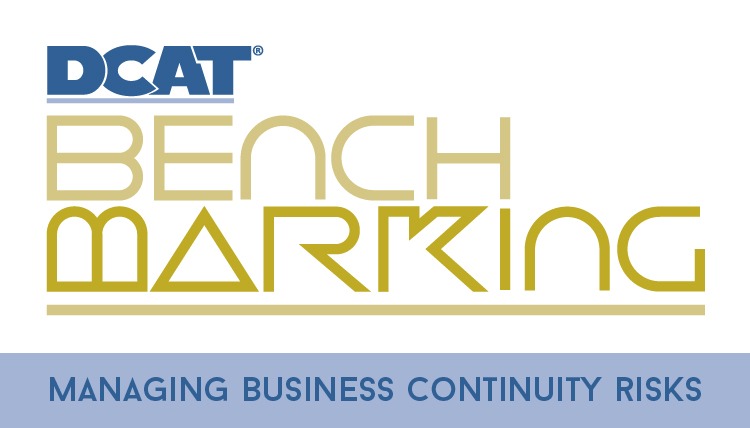Business Continuity Planning After COVID-19
An upcoming DCAT benchmarking study is examining the lessons learned and risk-mitigation practices taken by bio/pharma companies and suppliers in the wake of the COVID-19 pandemic. What best practices can be applied to mitigate current and future supply disruptions?
The COVID-19 pandemic has created unprecedented stress on the biopharmaceutical/pharmaceutical supply chain. An upcoming DCAT Benchmarking study, Lessons and Challenges for Business Continuity Planning: Preparing for the Next Crisis, will gauge how effective biopharma companies’ and suppliers’ risk management has been in the face of the challenges posed by the pandemic, and what initiatives companies are taking to ensure business continuity to mitigate current and future supply disruptions.
 |
|
Jim Miller |
The biopharma industry supply chain has faced significant challenges in recent years, but those posed by the COVID-19 pandemic were broad and unprecedented. Demand for critical medicines skyrocketed, suppliers operated under extraordinary constraints, logistics channels were challenged, and countries that host key links in the supply chain put restrictions on exports of those materials and products. The industry’s accelerated efforts to bring forward new treatments increased stress across all areas of the supply chain, including critical materials and equipment.
In order to maintain adequate product supply, biopharma companies engaged with suppliers more closely than ever. Customer interaction with suppliers expanded exponentially as biopharma companies increased monitoring of conditions deeper in their supply chains. Inquiries greatly expanded, and meetings were more frequent.
The pandemic has heightened biopharma companies’ focus on business continuity planning and management, i.e., the policies and procedures intended to enable companies to maintain operations during a disruptive event and/or quickly recover operations following such an event. The adequacy and effectiveness of existing continuity plans (where they existed) were tested, and areas of strength and weakness have been identified. At companies that did not have formal business continuity plans before the crisis, heightened awareness of their value and customer expectations that such plans be in place, have given those companies impetus to prepare them. Many of the practices developed in response to current supply-chain challenges will be permanent even while their implications must still be sorted out.
The DCAT Benchmarking study, Lessons and Challenges for Business Continuity Planning: Preparing for the Next Crisis, will track the evolution of business continuity planning in the biopharma industry. By means of a confidential survey administered to DCAT member companies (both biopharmaceutical/pharmaceutical companies and suppliers), it will gauge the following:
- What plans were in place when the pandemic hit;
- How effective those plans were;
- The lessons learned from responding to the supply-chain challenges; and
- What improved and new practices are companies putting in place to reflect the lessons learned.
The study focuses on direct materials used in drug development, manufacturing and packaging and gives special attention to the demands placed on suppliers as their biopharma company customers tried to anticipate and forestall potential disruptions in their supply chains.
The survey was developed by the DCAT Research & Benchmarking Committee, composed of DCAT member company volunteers, and is administered by DCAT in conjunction with an external, independent market research and consulting firm specializing in the biopharmaceutical/pharmaceutical industry. Members of the Committee are:
- Vince Ricevuto, Vice President, Direct and Manufacturing Site Procurement, GlaxoSmithKline;
- Dave McCarthy, Senior Director, Global Procurement, Pfizer;
- Christine Fuerst, Senior Director, Key Account Management, Vetter Pharma;
- Pnina Weitz, Vice President, Head of Strategic Relationship Management, Lonza;
- John Ross, President, Mayne Pharma US; and
- Ken Seufert, CEO, JRS Pharma.
 |
 |
 |
|
Christine Fuerst |
Dave McCarthy |
Vince Ricevuto |
 |
 |
 |
|
John Ross |
Ken Seufert |
Pnina Weitz |
The survey was launched on November 10th by an email sent to DCAT member representatives or their delegates, who will respond on behalf of their companies. Individual survey responses and company information will be kept strictly confidential; only aggregate survey findings and analysis will be reported and made available to DCAT member companies through DCAT.
The DCAT Benchmarking study, Lessons and Challenges for Business Continuity Planning: Preparing for the Next Crisis, will be released in the first quarter of 2021, and the study’s findings will be presented as a webinar.
The study will provide crucial insight, and it is important that your company participate to contribute to the peer insights provided by the study. Each company needs to complete only one survey through the designated DCAT contact of your company. For more information about this benchmarking study or to find out who received the survey invitation at your company, contact Erin Sanders, Senior Communications and Technology Specialist, at esanders@dcat,org.
About DCAT Benchmarking
DCAT Benchmarking is a complimentary, value-added member benefit providing in-depth studies that examine the crucial issues impacting the biopharmaceutical/pharmaceutical manufacturing value chain and the pharma customer—supplier relationship.
Using objective research methods, DCAT Benchmarking studies are a valuable way for learning of best practices and key metrics for companies engaged in biopharmaceutical/pharmaceutical development and manufacturing in key functional areas, including sourcing, procurement, supply management, and project management.
DCAT Benchmarking studies are exclusively provided to DCAT member companies on a complimentary basis as a member service. Recent DCAT Benchmarking Studies include: Managing Bio/Pharma Supply Chains in an Uncertain Global Trade Environment (2020), Examining Current and Future Alignment of the Pharma Customer—Supplier Relationship (2018); Value-Based Metrics (2017); and Value Creation in Pharmaceutical Procurement (2016). Further information about these studies and DCAT Benchmarking may be found here.






